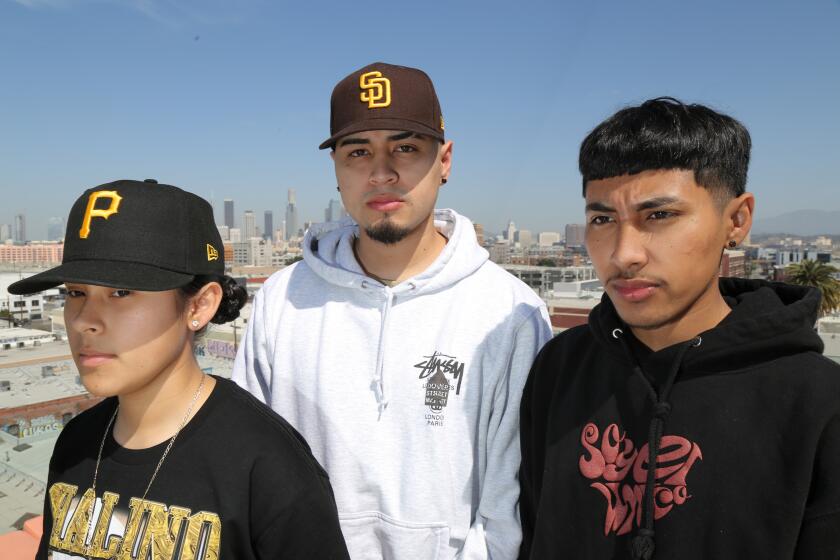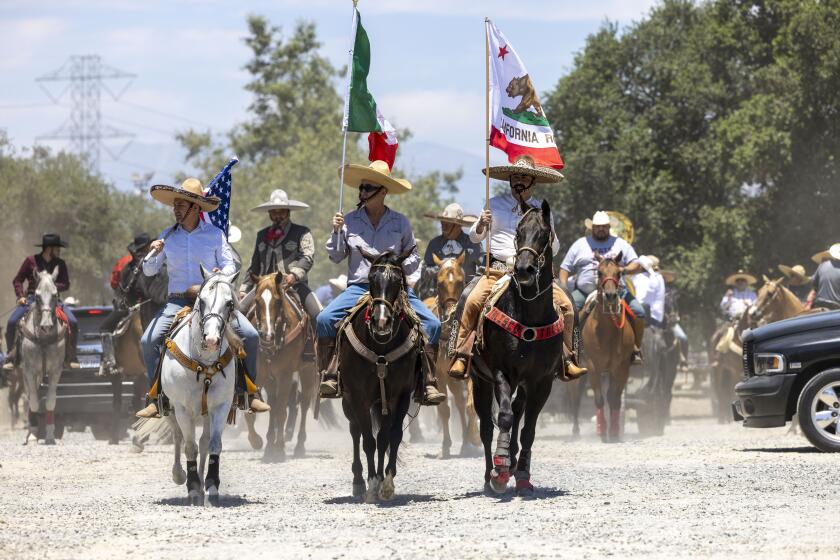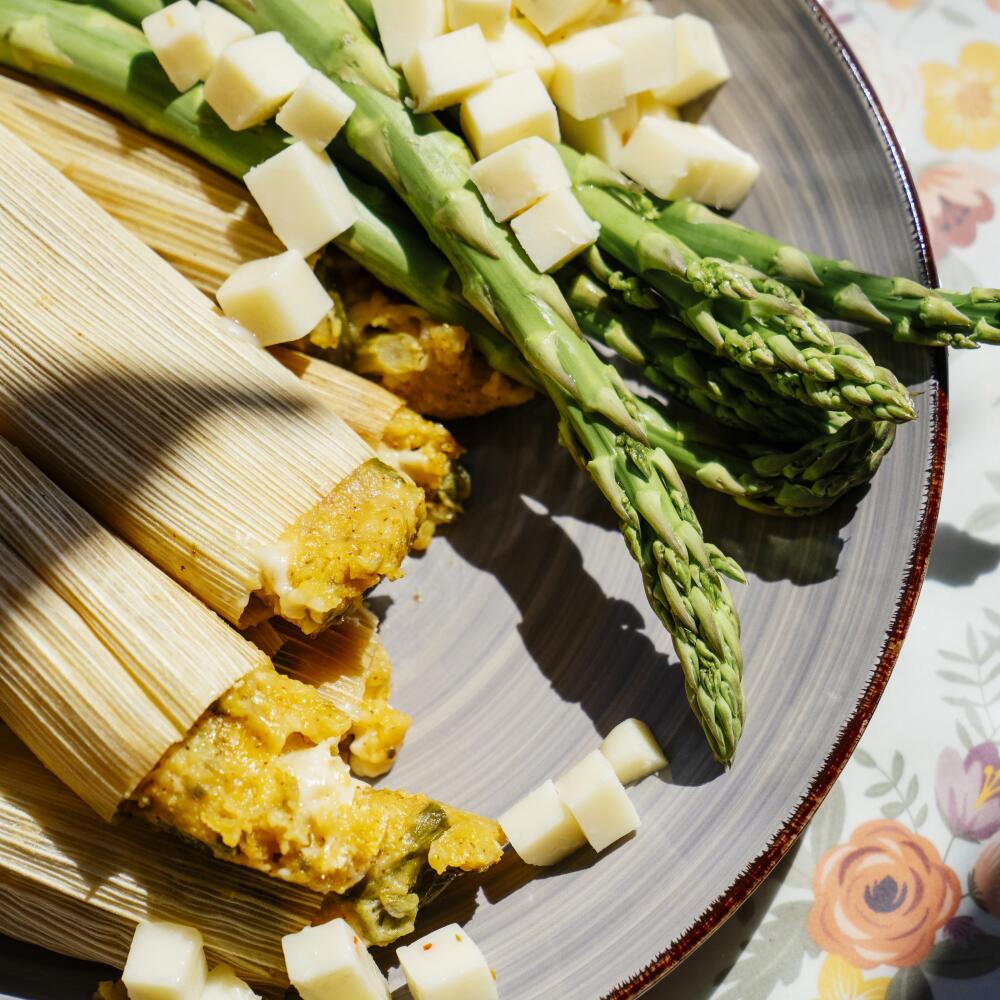
- Share via
YAKIMA, WASH. — Sitting at Los Hernandez Tamales feels familiar. The decor of this quaint Mexican tamaleria and restaurant is reminiscent of a house in Mexico. It’s warm — the small air conditioner in the window struggles to cool the inside of the tiny structure full of people picking up large orders or sitting in one of the few tables available. A delicious looking plate of tamales appears before me, but one of them has asparagus in it. I am no longer on the borderland. I am in the Yakima Valley in Washington state.
Recently, the Yakima Valley has received attention because of the impressive rise of local band Yahritza y su Esencia. The family band fronted by namesake 16-year-old singer-songwriter Yahritza Martínez, made waves on social media while doing an interview in Mexico City to promote an upcoming tour. When asked about their stay in Mexico City, Yahritza said she didn’t love the commotion of the city, and the kicker was older brother Armando mentioning that he preferred the Mexican food of Washington state, “where they really give it a seasoning that is spicy and tastes good,” he said.
It’s been a rough month for Yahritza y Su Esencia, whose comments in past interviews about Mexico have resulted in controversy. In a De Los exclusive, the band clears the air.
As a first generation child of Mexican parents, I related to their feeling of pride for where they grew up, and the backlash reminded me of the life-long feeling of being “ni de aquí, ni de allá.” But growing up in El Paso, a 10-minute drive from an international bridge, as opposed to 1,200 miles away in Yakima, felt a bit different. Like the Martinez family, I also relocated to Seattle for work, but I had yet to make it out to Yakima. The Mexican food in Seattle made me skeptical, but I drove over the Snoqualmie Pass open-minded and excited as to what I might find.
Owner Felipe Hernandez, originally from Piedras Negras in Coahuila, moved to Wapato in 1957 to do farm labor. He would go on to finish high school, enlist in the military and have a career in repair until Montgomery Ward closed. Unemployed at age 42, he took his savings and learned to cook tamales from his sister and started the restaurant in 1990. After a rough couple of years, word spread about the family owned and operated tamaleria.
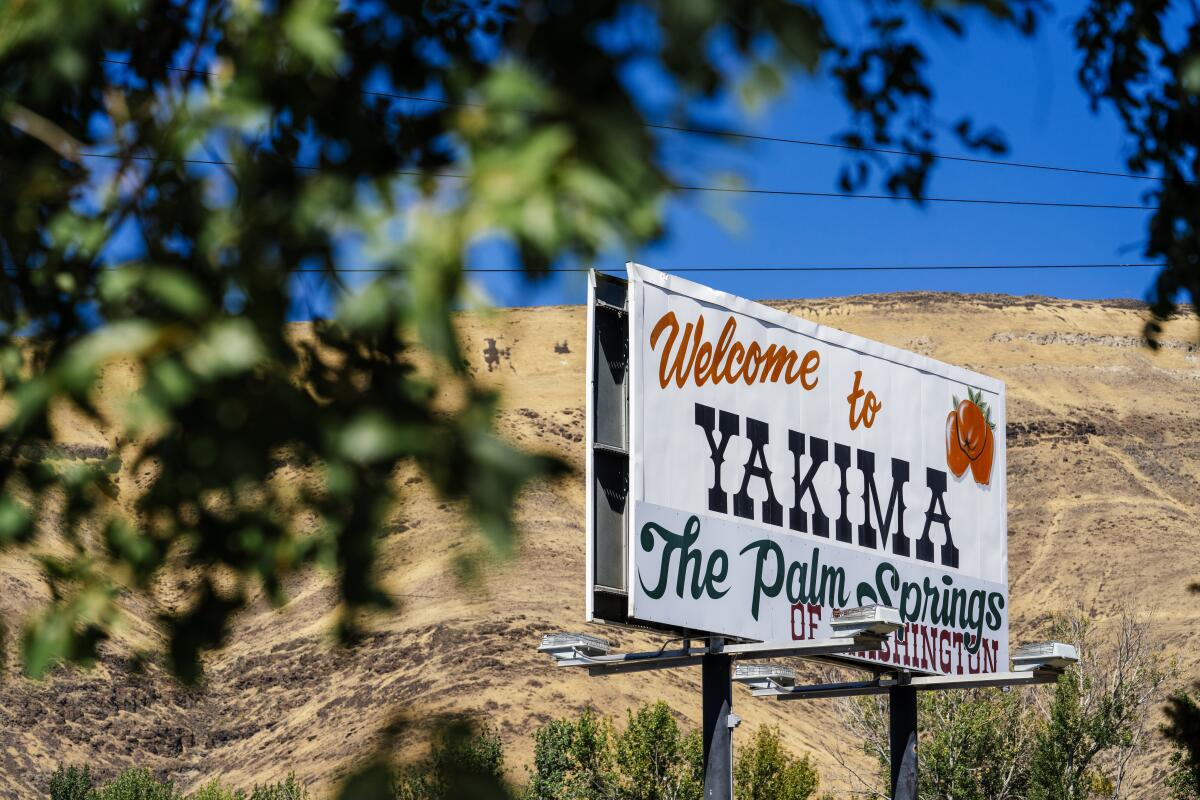
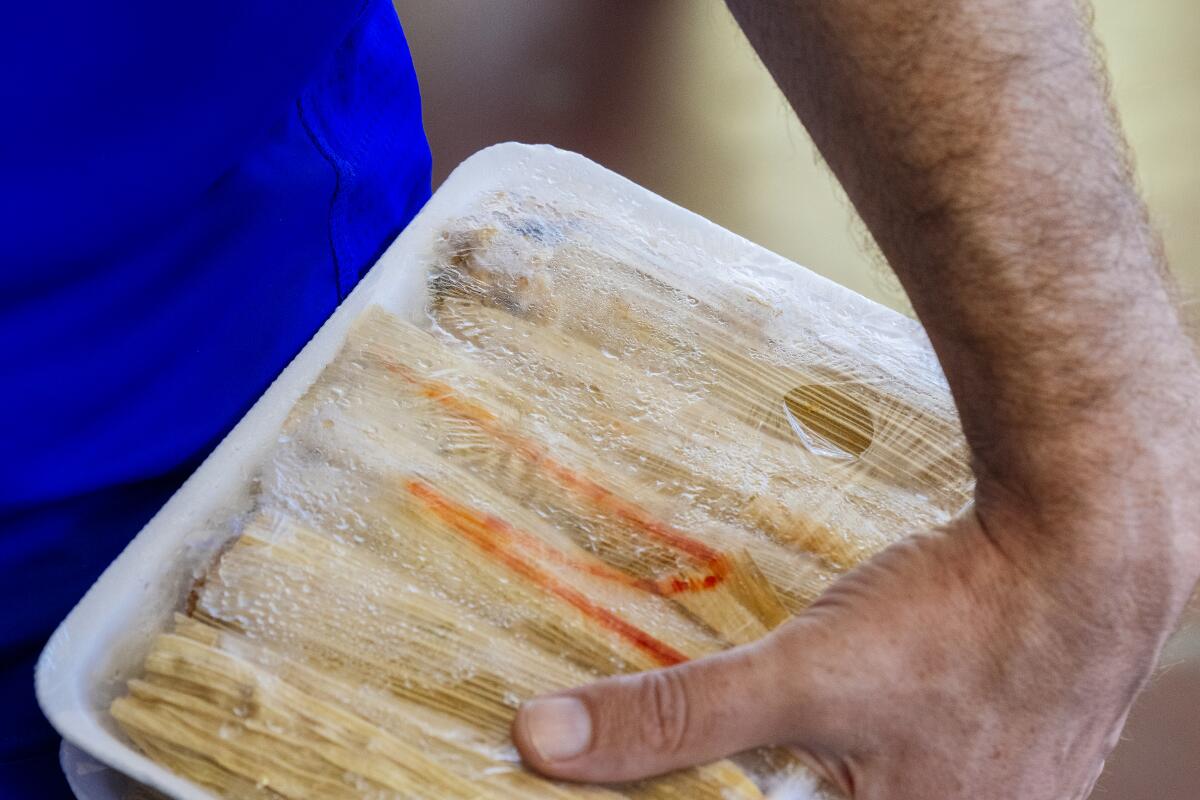
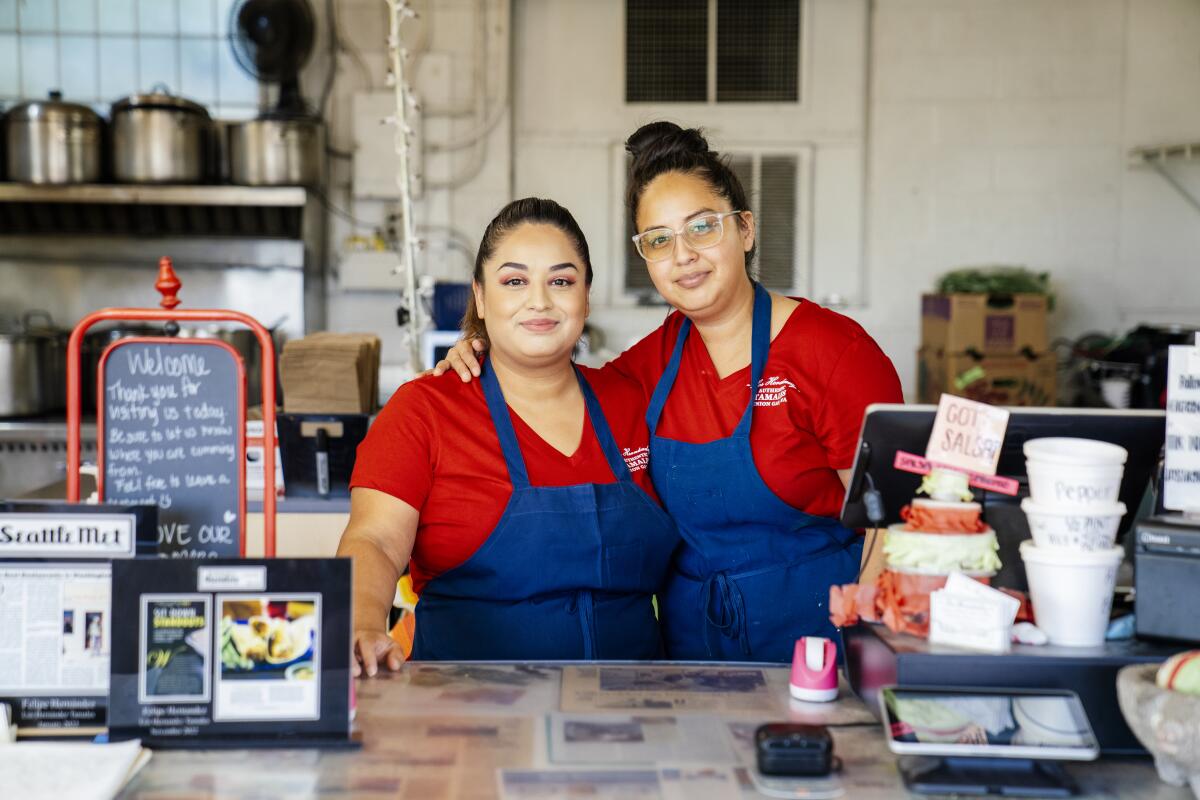
1. A sign reads “Welcome to Yakima, the Palm Springs of Washington” near Interstate 82. (M. Scott Brauer / For De Los) 2. A customer holds a dozen frozen nopales and cheese tamales inside Los Hernandez Tamales. (M. Scott Brauer / For De Los) 3. Sisters Nora (left) and Perla Madrigal work at Los Hernandez Tamales. (M. Scott Brauer / For De Los)
In 2018, Los Hernandez Tamales was awarded a prestigious James Beard America’s Classics award for being a staple in the community and for not only serving a traditional Mexican tamal but also for incorporating the nontraditional local ingredient. Asparagus is picked in the spring through early summer, and that’s when the asparagus and pepper jack tamal is available too.
The tamal was excellent. A perfect masa-to-filling ratio, with a slight kick from the pepper jack and the salsa, reminiscent of the rajas con queso tamales you find around Texas.
At the eatery, the door was rarely closed, with customers coming and going, getting large orders to go or having lunch plates at one of the five small tables.
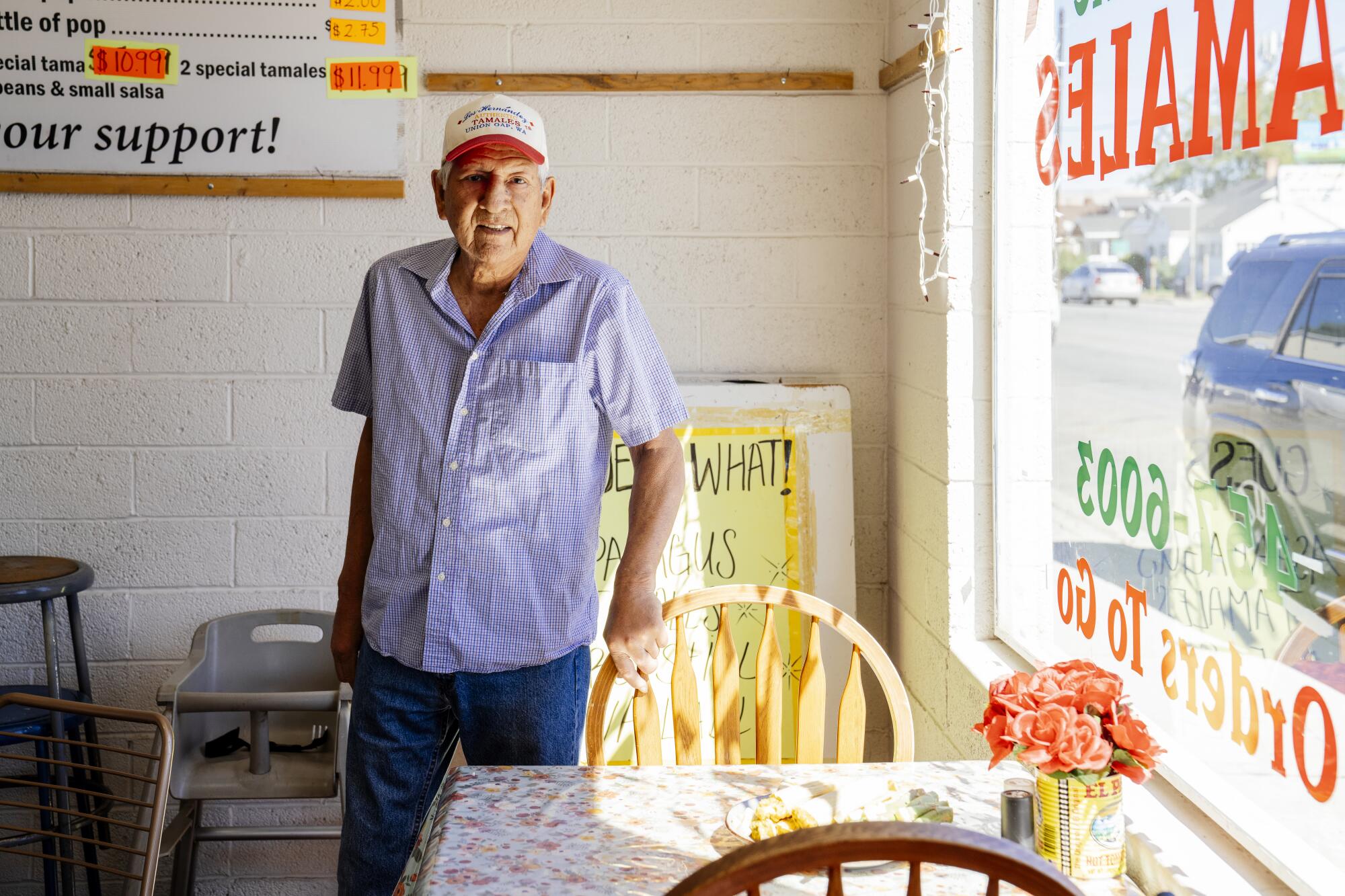
Mexicans have been traveling to work in the Yakima Valley for decades; the earliest records show a man named Juan Salinas arriving in Wapato in 1907. The Mexican population boomed during World War II, when the bracero program brought thousands of workers to the valley, many eventually making it home.
The variety of crops produced in the valley is incredibly long , including apples, hops, pears, onions, sweet cherries and hay. Even with advancements in technology, this requires a ton of labor to pick, process and move.
The most recent census data estimate that there are 257,000 people in Yakima County, with 52.6% reporting as Hispanic or Latino. Not included in that number are the close to 30,000 temporary seasonal workers Washington state brings in from Mexico annually.
Led by 15-year-old Yahritza Martinez, the sibling trio Yahritza y Su Esencia have turned a pair of viral TikToks into a record-breaking single and a debut EP.
As you drive into town, you’re greeted with a sign that reads, “Yakima, the Palm Springs of Washington.” This valley desert is surrounded by rolling hills very similar to those in the California getaway-retirement town. You might confuse the two if not for the lack of palm trees and golf courses. You can see Mt. Rainier and Mt. Adams’ volcanic peaks just over the hills on a clear day.
After the development of irrigation off the Yakima River, settlers quickly learned that the volcanic ash-rich soil was incredibly fertile. That soil would eventually make the Yakima Valley one of the largest agricultural producers in the country.
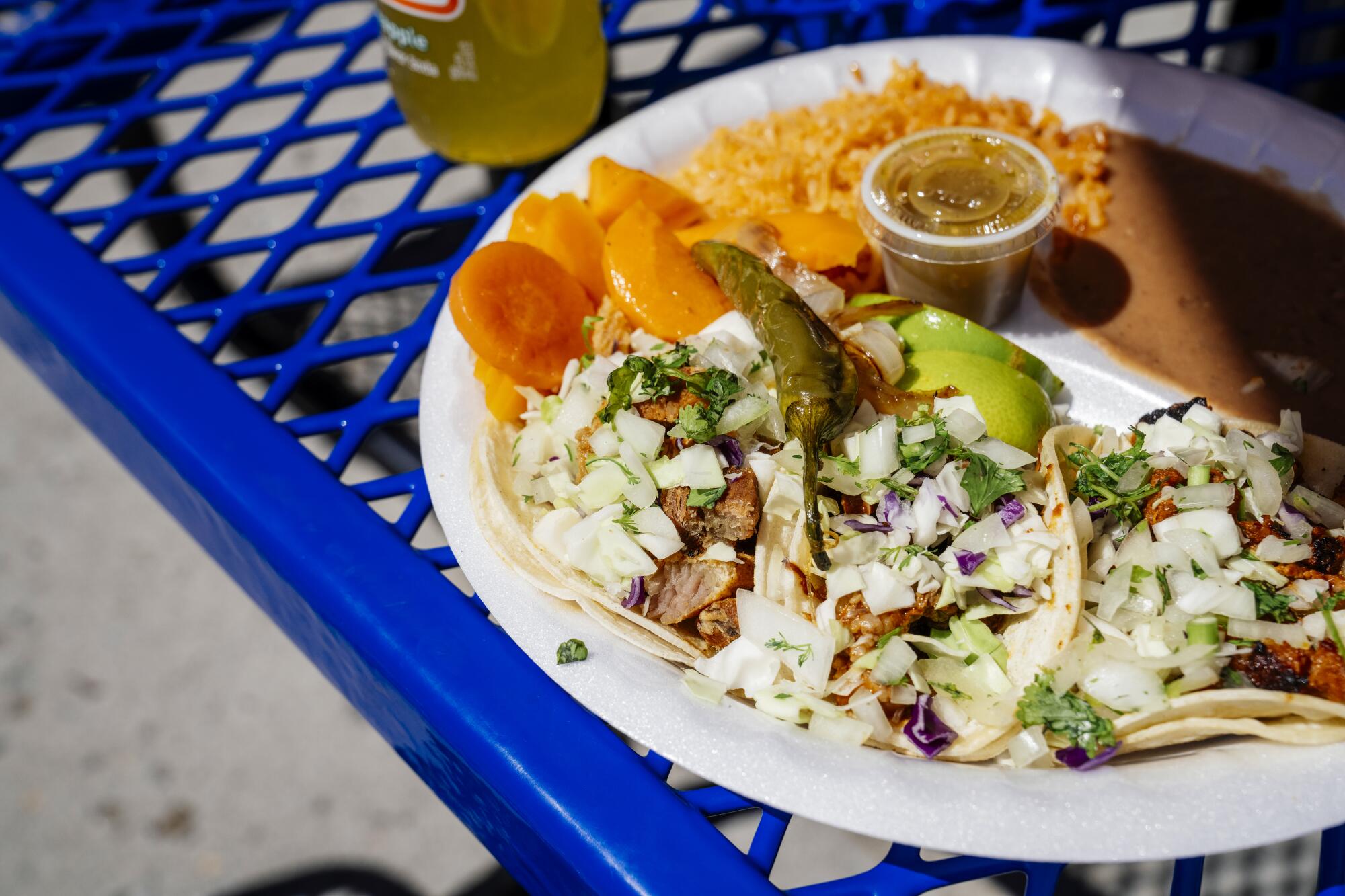
When you drive through Yakima, it is apparent who lives where. In the hills, you see the mansions of the legacy owners of the local historical orchards and fields; the higher ground highlights the ranch houses and homes of middle management; and on the low ground and outskirts, you quickly see the smaller homes and trailers of the predominantly Latino community.
‘When I first started playing folk music, people would look at my cowboy boots and be like, “Wow… so how did that happen?” ’
On this Friday, buses outside Fiesta Foods await temporary agricultural workers buying groceries and other necessities. The old school buses are owned and run by various orchards and fields that surround the valley. The lines are incredibly long because it is pay day and the workers are stocking up before getting bused back to their temporary housing.
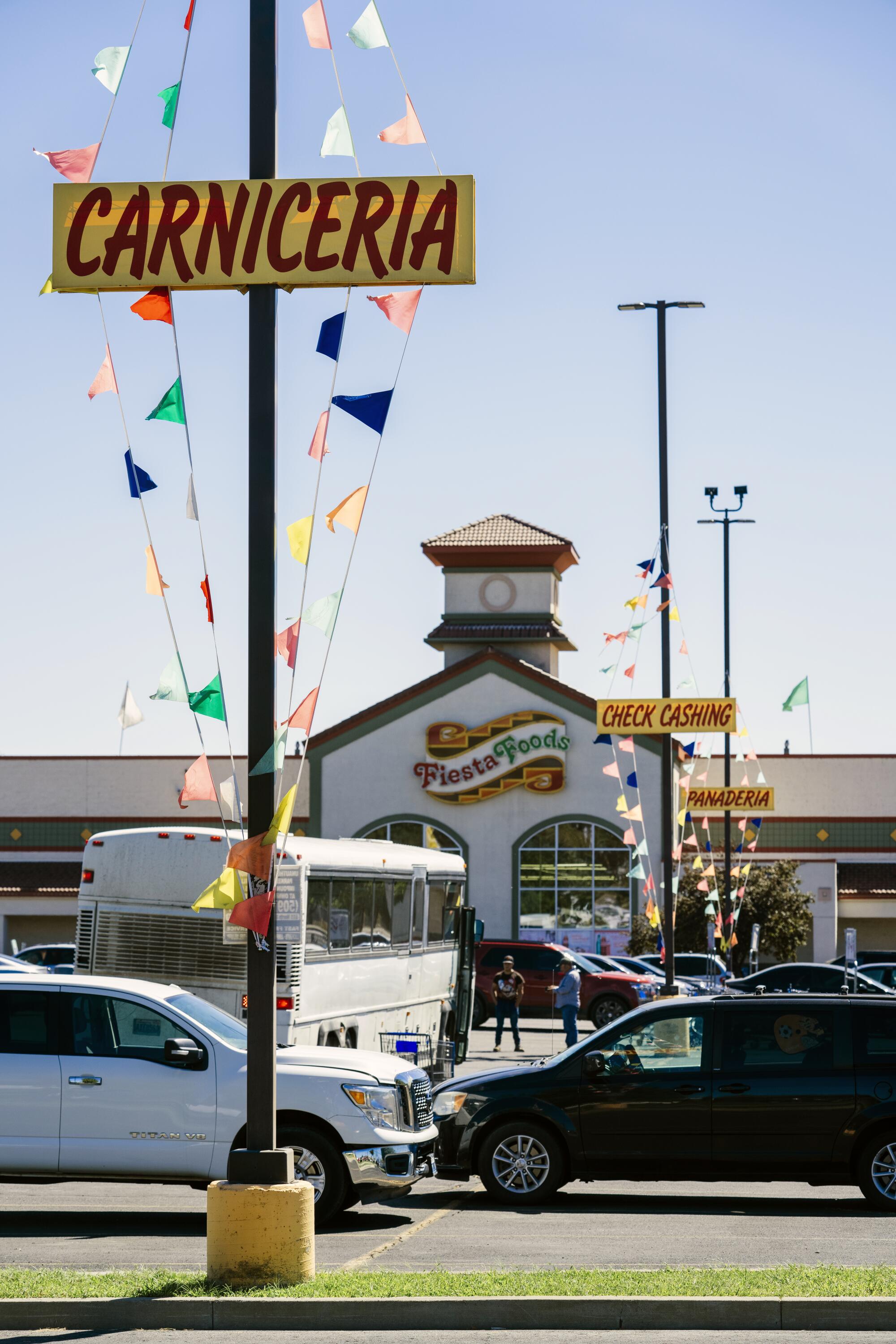
Driving down 1st Avenue, I see a taco truck outside a laundromat. Los Primos has multiple locations across Yakima. I ordered a tripas and buche taco, as I have never seen either in Washington state before. The tripas was perfectly crisp with a nice chewiness, and the buche had great flavor; both were served with a delicious spicy and tart escabeche. I asked the taquero, Miguel, about the recent Yahritza y Su Esencia comments about Mexican food. He got a bit shy when I started recording, saying, “Está dificil porque son diferentes gastronomias. Se trata de acercar a lo mas mexicano posible a la gastronomia mexicana.”
The son of an immigrant mother, local tattoo artist José Contreras spent his summers between Yakima and Michoacán.
“I’m not going to say that the food is better than over there, but there’s certain flavors I grew up with in Mexico,“ he says. ”But Mexican food is also regional. People from different parts of Mexico constantly argue about how their food is better.”
He adds that a lot of people in Yakima are from Michoacán or have roots there. Since 1999, Yakima has been involved with Morelia in Michoacán in a sister city program to provide cultural understanding between two international cities by hosting cultural events between the two.
Started by millennial activists, the Avocado Heights Vaquer@s are helping mobilize equestrian communities to fight expansion that threatens an agrarian way of life.
The gatekeeping of what is authentically Mexican has been happening for a long time, and the parameters are constantly moving. Yakima felt about as Mexican as any place in the U.S. Driving down 1st Street felt like driving down Alameda in El Paso, dotted with Spanish signs for businesses catering to a Mexican audience. The beauty of the hills and surrounding fields, the delicious food, the sound of Spanish everywhere you go, and the sense of love from the community; I can see why the Martinez kids are proud of their hometown and why, like many of us, they crave the familiarity of home.
There is no right or wrong way of being Mexican. None of our experiences will ever be identical, and to put all that weight on someone’s preference of food seems particularly arbitrary. Othering within our own community seems pointless when there are already plenty of people working against us in this country. Being Mexican means embracing whatever culture you grew up with and evolved with and passing it on, or maybe it means putting up with the pendejadas other Mexicans say about you.
Perez is a freelance writer based out of Seattle, writing about culture, sports, music, food and the way they intersect. Has previously written for Eater, Vice and Remezcla.
More to Read
The Latinx experience chronicled
Get the Latinx Files newsletter for stories that capture the multitudes within our communities.
You may occasionally receive promotional content from the Los Angeles Times.

